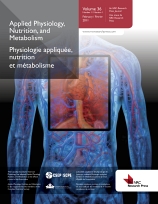University of Northampton research into exercise and stretching makes new recommendations for fitness enthusiasts and athletes
Date 23.12.2015

A researcher from the University of Northampton has this week had a large scale review published in leading journalApplied Physiology, Nutrition, and Metabolism.

The review, which was co-authored by Associate Professor Tony Kay, has found that the best way to get the most out of your workout is a complete warm-up that includes static stretching, dynamic stretching, and even an aerobic component. The research has new recommendations for fitness enthusiasts, athletes, coaches and rehabilitation practitioners – and its controversial findings have already been picked up by leading publications, including Men’s Fitness and Medical Daily.
Associate Professor Kay explained: “Over the last 15 years we have been told that static stretching could cause performance impairments and that it does not reduce injury risk. As a result, researchers, coaches and governing bodies have recommended a switch from static stretching to dynamic stretching. However, the conclusions of our systematic review of hundreds of studies examining the effects of static, dynamic, and proprioceptive neuromuscular facilitation (PNF) stretching techniques contradict common recommendations from the last 15 years and highlights several misconceptions and limitations in the literature.”
“It is vital that we critically examine the literature to ensure appropriate recommendations are made to the public, especially activities that promote health”, adds Professor Kay.
The review, ‘Acute effects of muscle stretching on physical performance, range of motion, and injury incidence in healthy active individuals: a systematic review’ appears in the December edition of Applied Physiology, Nutrition and Metabolism.
Applied Physiology, Nutrition, and Metabolism is a monthly journal that focuses on the application of physiology, nutrition, and metabolism to the study of human health, physical activity, and fitness. The review’s findings have been endorsed by the Canadian Society for Exercise Physiology (CSEP).